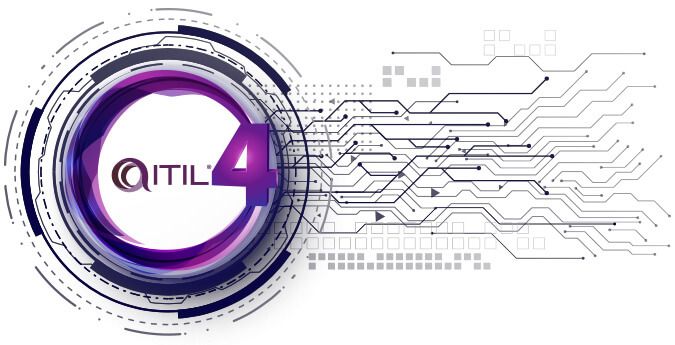
ITIL Certificate Path 2019 and Beyond
If you are looking forward to applying for a job that requires a higher level of expertise and operational skills, then ITIL certification is a must for you. Any job ranging from IT manager to any higher role will have to justify the skillset and level of expertise of the professional explaining whether or not they are fit enough for the job. There are many reasons for acquiring an ITIL certification, such as it would demonstrate your skill set and level of expertise along with many leadership qualities required in an IT manager.
One of the very fundamental reasons that many professionals seek to acquire an ITIL certification is that not only it looks great over your resume, but it also provides a different edge to the interview. If you have an ITIL certification plastered over your resume and are job hunting, then without any doubt, it will become the central talking point of the interview.
It might become the potential reason for you getting hired. The essential elements that are taken care of by an ITIL professional include the development of an IT strategy, implementing it via design and development, and finally to support it in long term action.
What is ITIL certification?
Some people might argue that ITIL focuses on the development of systems but, most importantly, to keep these systems operational. ITIL refers to Information Technology Infrastructure Library; the UK government first started the initiative for various companies to define their standards and operational practices about how these should operate.
ITIL is broadly applicable in various standards and different levels of the IT industry, and that is why it became an internationally recognized certification. There are multiple levels or versions of this certification, such as the latest version was introduced in February 2019, and the one before that was ITIL v3 first launched in 2007 and revised again in 2011.
However, the primary difference between the two include;
- Assigning clear and proper definitions of various IT-based operations and defining multiple value streams such as how businesses and companies can partner up to deliver value.
- To continue with the modern up-gradation of the IT-based systems such as shifting from the convenient physical data centers for storing user information towards the cloud technologies.
- Fast and reliable modern operations to meet with the ever-changing requirements of the businesses, such as faster delivery of information and speed-oriented response time.
Levels/career paths of the ITIL certification
There have been multiple changes among the standards and career paths relating to the numerous ITIL certifications in 2019, such as ITIL 4. However, we will be discussing these changes and the ones that are yet to emerge in the second half of 2019;
Foundation: The starting place or initiation of your journey to acquire ITIL certification; this is where you learn the basics.
Specialist: To acquire a managerial role in any field of the IT industry, you are required to master 3 phases of ITIL certification, including to create, deliver/implement, and support various IT operations.
Leader: To acquire the strategic leader designation, you are required to pass the Digital & IT strategy module.
Strategist: There is only one module in the ITIL certification to qualify as a strategist, and that is the direct, plan, and improve the module.
Master: This is the highest level of designation or career path that you can achieve via ITIL certification. It takes into account passing all certifications across the strategic leader designation and management professional.
As part of the ITIL 4, two different designations have been added into the mix, and this update came through by February 2019;
Management Professional: This professional is responsible for managing the operations of IT organizations, such as how to implement various processes and lead IT, teams.
Strategic leader: This is the newest designation in ITIL 4. It takes the game beyond the basic day to day operational values of management professionals and provides them with access to strategically direct all IT-based services and operations.
Recommended ITIL foundation training
In events of all the changes made within the ITIL certification up till 2019 and moving forward, it is recommended to begin with the ITIL 4. The main reason behind this is that many professionals come from different backgrounds, and they already have a bunch of certifications completed. Their endgame is to score for higher IT jobs or levels such as Management Professional; if you happen to be among this group, then it is advised to begin with ITIL 4 certification. So, it is advised to get ITIL foundation certification training online before taking the exam.
ITIL v3 certification, on the other hand, is more perspective based and carries an extensive array of operations and IT services, therefore not recommended at once. But for the exceptional professionals who want to stick with basics and sharpen their operational skills and professional reach should begin their journe7y by getting ITIL v3 certified.
ITIL 4 training recommendation
To pass the exam featuring any of the ITIL 4 foundation modules, you must be well acquainted with different versions or modules offered within ITIL 4. If not, then it is paramount that you get that right first. You will be very well prepared for the exam only if you know the fundamental differences between various versions of the ITIL 4 certification and have taken classes/courses or training in a particular version of this certification.
There are, however, different fees to appear in the ITIL exam, depending on the version you have chosen. An approximate fee structure ranging from $349-$469 is valid for multiple versions of the ITIL 4 foundation certification. You can register yourself as a candidate via InfoSec Academy, and the rest of the instructions for your particular version of the ITIL 4 Foundation certificate will be listed there.
Moreover, you will have a great chance at success if you have the effective entraining and preparation done before taking the exam. Get yourself ITIL certified and propel through higher ranks of the IT security and management; it will also open many relative options at success for you.
